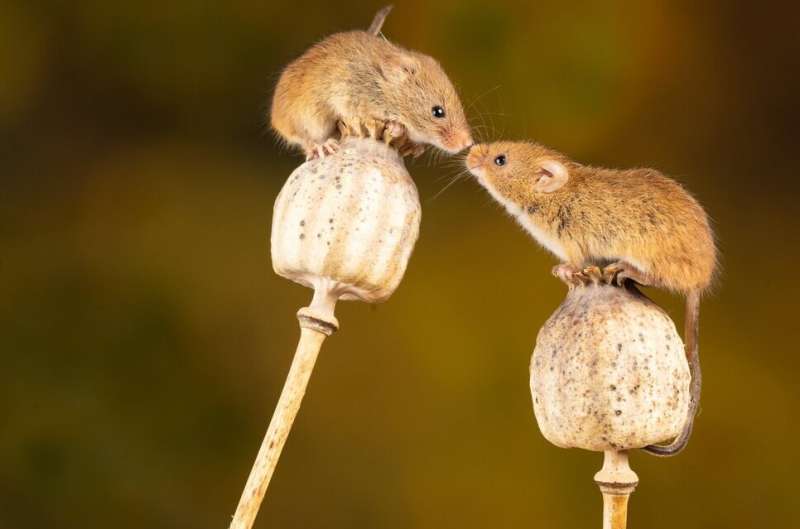May 25, 2021 report
Female mice take longer to find a new mate after death of monogamous mate than males

A trio of researchers at Saint Joseph University's Department of Psychology has found that female California mice take longer to mate with a new partner after the loss of their monogamous mate than do males. In their paper published in the journal Behavioural Processes, Amber Valentino, Robert Roy and Elizabeth Becker describe their study of lab mice reproductive behavior.
Prior research has shown that California mice are a rare monogamous rodent species—they mate for life. However, sometimes the pairing is interrupted by the death of one of the pair, or in rare cases, abandonment. Prior research has also shown that males also take part in caring for the young by bringing food. For this reason, females tend to be choosy when picking a mate—some males tend to work harder in helping to raise the young than are others. In this new effort, the researchers wondered what happened with the mice when one or the other dies or leaves. To find out, the researchers obtained and analyzed the birth records of 584 California mice pairs for information about monogamous pairs as well as pairings between mice who began mating with a replacement after the death of their first mate.
In looking at their data, the researchers found that 59 of the pairs were re-pairs. They also found that a little over 84% of those that were re-paired gave birth to at least one new litter. They noted that this finding was a surprise, as prior research had suggested it would be much lower. They also found that males took no longer to re-pair and produce a litter than did males who mated with their original mates. Newly widowed females, on the other hand, took approximately ten more days to re-pair and produce a litter than did females with their original mate.
The researchers suggest the difference in time between re-paired females and re-paired males reproducing is likely due to females being choosier in picking a new mate. After losing a partner, they need to regain confidence that a new mate will not only survive but will help them raise their next litter.
More information: Amber Valentino et al, Reproductive success diminished following mate loss for females but not males in a monogamous rodent, Behavioural Processes (2021). DOI: 10.1016/j.beproc.2021.10441
Journal information: Behavioural Processes
© 2021 Science X Network




















